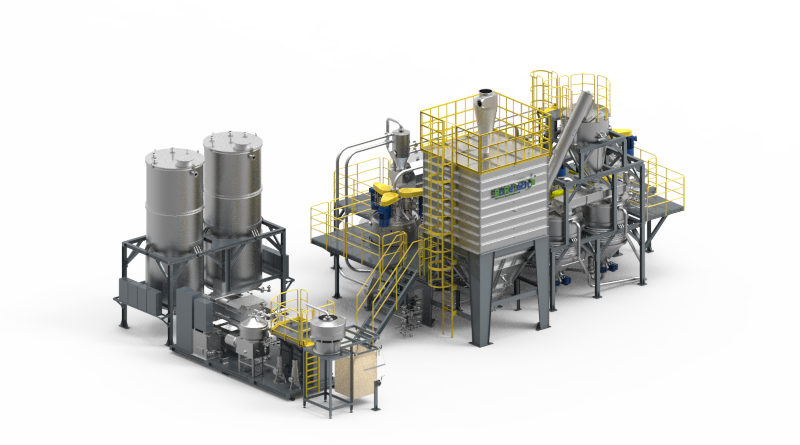Latest generation ES process bottle recycling
Boretech, Booth NF07
PETplanet: What recent developments in the PET market have significantly influenced your ongoing R&D initiatives?
In recent years, we have observed several changes in the packaging market with the gradual increase in the application of recycled PET. Many countries have also progressively relaxed regulations on the use of recycled PET in food contact applications. Such measures have played a positive role in promoting the development of the PET recycling industry.
On the other hand, there are new requirements for the design of PET bottles to facilitate better recycling. Some brands have introduced PET bottles without labels, contributing to improved recycling efficiency. Examples include the global launch of the first-ever “label-free Coca-Cola” in South Korea by Coca-Cola, 100% recyclable PET bottles without labels introduced by the Thai mineral water brand C2, and the redesigned label-free green tea packaging from Suntory in Japan. These designs are being well-received by the PET recycling industry. We are pleased to see this series of changes, as they are crucial for us to adjust PET bottle recycling and cleaning processes.
Furthermore, PET recycling industry players are expanding globally. Companies are aligning with ESG (Environmental, Social, and Governance) goals, demanding unmanned operation for recycling equipment, and presenting new requirements for water usage, energy consumption, and space utilisation. In the aspect of equipment development and improvement, Boretech is optimising operations concerning personnel, energy consumption, and space. The scope of PET recycling has broadened, and diverse solutions are proposed for different forms of PET containers.
PETplanet: As we approach this year’s Chinaplas in Shanghai, we are eager to learn about your expectations for the event. What specific goals or outcomes are you anticipating for your company?
Last year at Chinaplas, there was a noticeable lack of overseas attendees. In 2024, with travel restrictions completely lifted and the implementation of unilateral travel facilitation policies by the Chinese government, it is expected that the number of overseas visitors will increase, contributing to a more vibrant Chinaplas this year. We are eagerly anticipating the upcoming exhibition and have made thorough preparations. We will showcase our latest generation ES process recycling solution for PET bottles on-site to meet the evolving demands of the market. We look forward to the opportunity to connect with industry professionals and demonstrate our commitment to addressing the changing needs of the market.
PETplanet: Could you please share a preview of what visitors can look forward to in terms of highlights on new products, technologies, or interactive experiences that will be showcased?
Built on the enhancement of equipment performance and functionality, the new generation process, formed through the integrated design of the process, is streamlined for efficient operation. It features high-quality recycling and cleaning, with a production line characterised by advanced levels of automation and informatisation, low manpower requirements, low production costs, high product recovery rates, and a high cost-effectiveness ratio.
- Occupying a smaller footprint with approximately a 25% reduction compared to traditional processes, Boretech system maximises cost savings for customers in terms of land use and factory construction for equivalent processing capacities.
- Highly modular, it achieves synergistic effects where 1+1>2, integrating processes seamlessly to reduce space requirements and enhance overall efficiency.
- Delivering high-quality finished products with virtually zero residual chemicals, our system exhibits exceptional cleaning performance, ensuring stable product quality suitable for both bottle-to-bottle and ultra-fine fibre production.
- With low production costs and a reduction of approximately 1/3 in online labour requirements, the system emphasises machine automation, ease of maintenance, and high levels of efficiency, optimising unit energy consumption.
- Environmentally sustainable, the system incorporates a 13.3% reduction in average energy consumption per ton of output through precise online filtration of chemical water, minimising overall resource usage.

